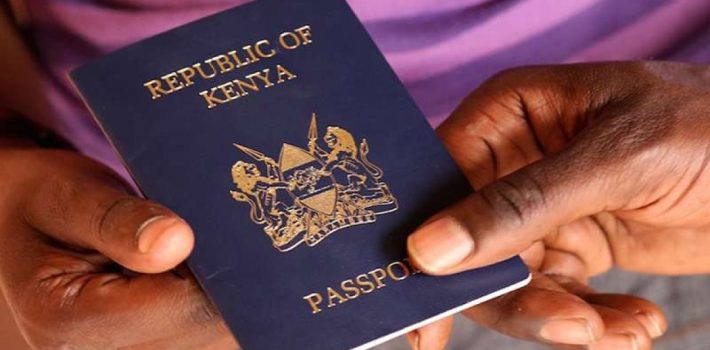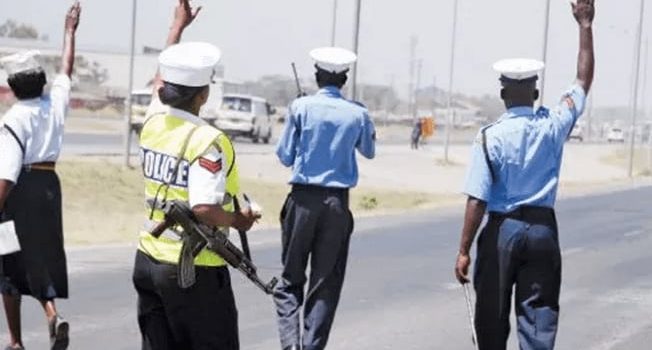What to experience in Tanzania During your Self-drive safari
The time for you to travel to Tanzania and in east Africa the giant precisely.some of the facts about Tanzania in tourism and you have to experience the following
Are you planning an out of the ordinary journey to East Africa precisely Tanzania?. Thats so Great. Perhaps you’re comparing to see some interesting places to go. Here is our own list of 10 best experiences of things to do in Tanzania. Truest me, you’ll love it.
While the safaris in Tanzania are the biggest tourist attraction, there are other many things to do and see in Tanzania. Whether you like adventurous hikes, natural curiosities, or relaxing on beautiful beaches, this beautiful country on the African east coast has something for you.
There are a lot of things to do in Tanzania! This list of ten things to do in Tanzania doesn’t cover all there is to do. If you’re planning a longer visit or you have specific interests, do some more research to assertion more.
1. Visit Some Prehistoric Sites
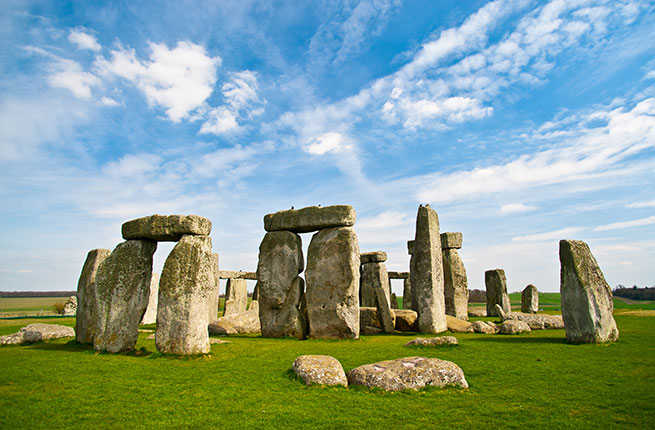 The great rift valley ranges all the way from Lebanon to Mozambique. It runs through Tanzania. This rift is where human life is believed to have begun.
The great rift valley ranges all the way from Lebanon to Mozambique. It runs through Tanzania. This rift is where human life is believed to have begun.
At Isimila Gorge, close to Iringa, you can look at stone age tools from almost 100,000 years ago. There’s also a collection of fossils of extinct animals.
Olduvai Gorge, also known as the cradle of civilization, is also found in Tanzania. This is where the Leakey s found remnants of the oldest known human species.
This find, dating back 3 million years, is how we learned that humans evolved in Africa.
2.Spice Islands best of Dive around
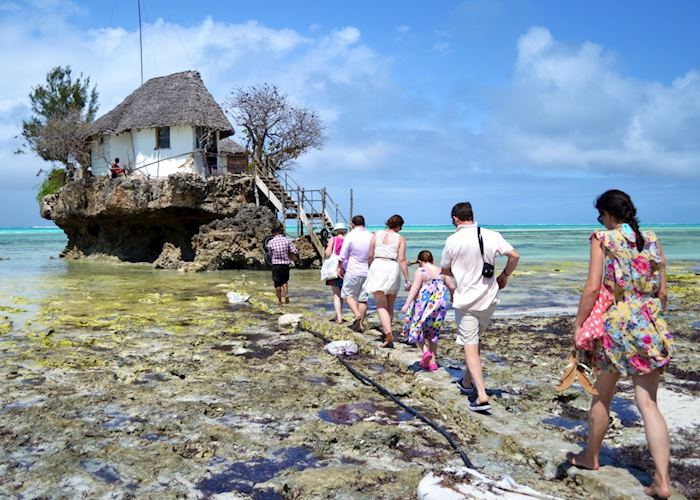
Zanzibar isn’t just beautiful on the surface. Beyond the sandy beaches, under the turquoise water, is another realm of beauty. This is true for many islands in the region.
The Spice Islands are considered the best area for diving and snorkeling in East Africa. So you have calmer options when Zanzibar gets crammed full of tourists during high season.
Pemba island is a popular spot to enjoy on the shores of Indian ocean underwater experience. It’s close to Zanzibar but less crowded.
It’s an ideal spot to explore marine life and beautiful coral reefs.
3. Manyara Lake Manyara Bird-Watching
Lake Manyara is not only a beautiful piece of nature. It’s also home to roughly 300 species of migratory birds. You can find various eagles, storks, and kingfishers.
But what makes this alkaline lake famous is the pink flamingo population. You can find thousands of flamingos here. It’s a big attraction for bird watchers and photographers.
In the dry season, the lake is dried up. That doesn’t change its status as a great wildlife watching spots. When the birds leave, they’re replaced by hippos, elephants, and giraffes.
4. Ngorongoro Crater for wonders of Nature
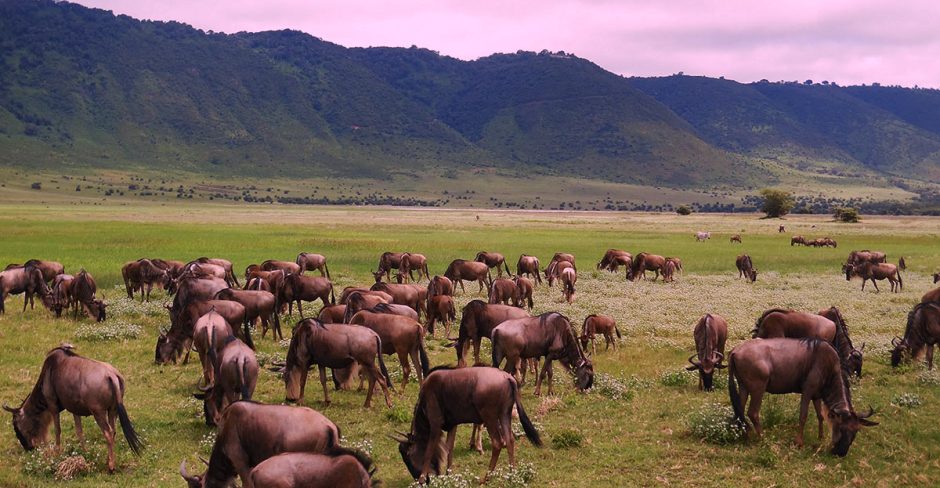 This is the biggest unbroken caldera in the world. It’s around 12 miles across, with 102 square miles of bustling, open grassland. There’s a high wildlife concentration all year, with more than 30,000 animals.
This is the biggest unbroken caldera in the world. It’s around 12 miles across, with 102 square miles of bustling, open grassland. There’s a high wildlife concentration all year, with more than 30,000 animals.
You can find those rare black rhinos here, as well as pink flamingos. And the world’s highest lion population density. Almost any species of wildlife native to East Africa can be found here.
It’s a good spot to look for the “big five” of African wildlife – a lion, an elephant, a leopard, a rhino, and a buffalo. If you want to stay longer to see more wildlife, there are lodges and campsites where you can spend the night.
The Ngorongoro Conservation Area is close to the Serengeti. So if you’re into wildlife, you can do them in close succession.
5.You can go for canoeing on the coast of Indian ocean
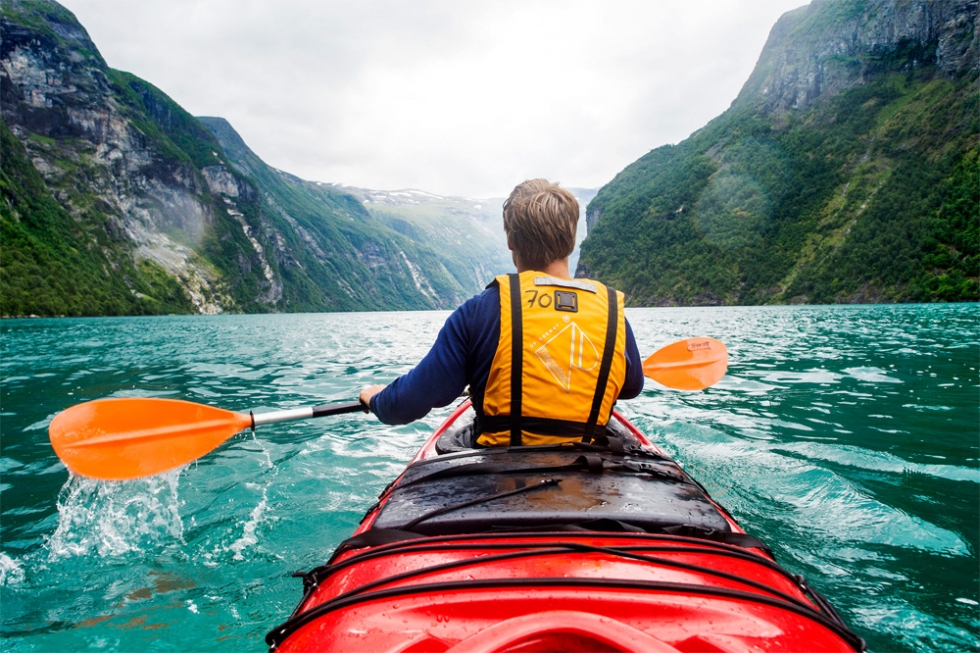 The beautiful coastal waters are best explored in a canoe or kayak. You can rent canoes and kayaks with or without guides. Few things are as peaceful as a canoe ride in nature.
The beautiful coastal waters are best explored in a canoe or kayak. You can rent canoes and kayaks with or without guides. Few things are as peaceful as a canoe ride in nature.
6. Go See Wildlife in the Serengeti
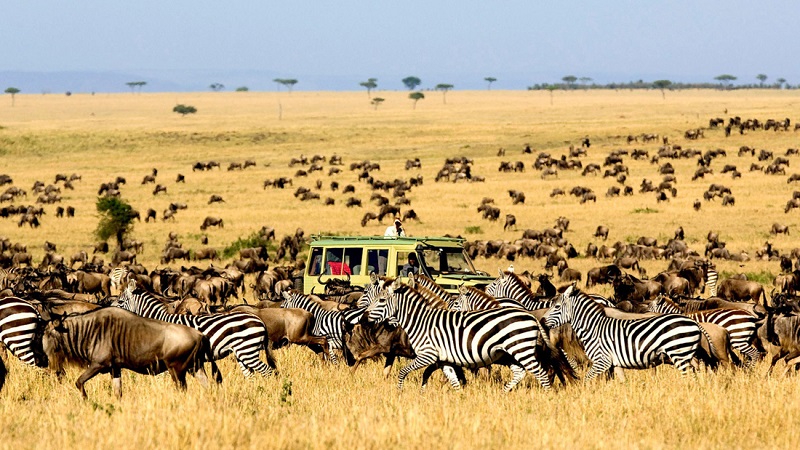
A wildlife safari is an essential to a great Africa trip. Tanzania is the perfect place for this.
Drawing its name from an old Maasai word meaning “endless plains,” Serengeti National Park covers more than 5,000 square miles.
It’s the home of some of the most exotic wildlife in the world. The landscape and beautiful sunsets are just as majestic. Make sure to bring a camera.
This place will offer some of the best chances to snap a picture of lions, wildebeest, and zebras.
It’s the most lively between June and September. Each year, more than a million wildebeest cross the plains to find greener pastures. Thousands of zebras and gazelle take the same journey. The predators follow in their steps.
It’s the least rainy time of the year as well. You can camp out and wait for the migration with certain tours.
It’s a vibrant place all year though. With leopards, cheetahs, lions, and elephants living here, there is no bad season to visit the Serengeti.
There’s a vast selection of different tours, there’s something that fits everyone. Whether you prefer relaxing on the beach or trekking and climbing where others don’t go, the Serengeti won’t disappoint.
7. Enjoy a Ride to Zanzibar on a Ferry
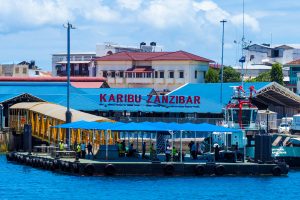 Zanzibar is a popular destination for relaxing on beautiful beaches and exploring local culture. It’s famous for its historical areas, spice markets, and beautiful nature.
Zanzibar is a popular destination for relaxing on beautiful beaches and exploring local culture. It’s famous for its historical areas, spice markets, and beautiful nature.
One of the most popular places on this island is the UNESCO World Heritage site of Stone town. You can explore picturesque, narrow, winding streets through bazaars and past old mosques.
You can also find the house where Queen frontman Freddy Mercury grew up, and have a drink at Mercury’s bar.
This place has a lot of history, having been a key trading hub for both spices and slaves. The old fort and the night market offer a glimpse through the centuries.
8. Get a Taste of Local Urban Life in Arusha
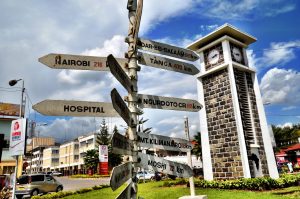 In Arusha, located in the north of Tanzania, you can experience what city life is like in the country.
In Arusha, located in the north of Tanzania, you can experience what city life is like in the country.
The city sits at the foothills of Mount Meru, surrounded by vast fields of corn, beans, coffee, and wheat. You can buy this cheap, fresh local produce in markets throughout town.
The cultural center hosts African art and culture exhibits. Escape the city atmosphere for a while, soak in the local culture, have a coffee on the terrace. It’s a good place to purchase a souvenir or two.
9. Visit the Chimpanzees in the Mahale Mountains
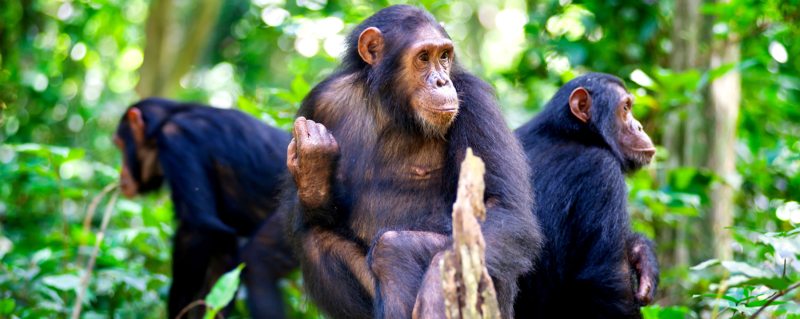
The Mahale Mountains in Tanzania are one of the best places in the world to view chimpanzees living in their natural habit.
This area near the clear waters of the beautiful Lake Tanganyika is home to around 1,000 chimpanzees. You can also find other primates here, such as red colobus and baboons. It’s a newer tourist destination, so it won’t be too crowded.
10. Climb Mount Kilimanjaro
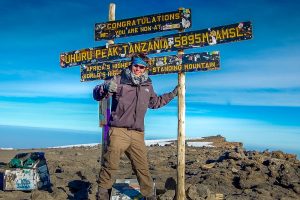 Right on the border against Kenya, you find Mount Kilimanjaro. Climbing it is among the most adventurous things to do in Tanzania.
Right on the border against Kenya, you find Mount Kilimanjaro. Climbing it is among the most adventurous things to do in Tanzania.
It’s a big tourist draw with around 35,000 visitors attempting the hike each year. However, it’s not overcrowded. And it’s still an adventure to be proud of. Not everyone makes it all the way.
It’s a six-day hike for the average person, and you won’t need any special climbing equipment. Just bring proper clothing, food, water, and an adventurous attitude.
Get ready for some amazing views. You’ll encounter five unique climates as you ascend toward the top of the world’s tallest free-standing mountain.
At 19, 340 feet, you can feel rightly proud of reaching the highest peak in all of Africa. Don’t miss out on this adventure of a lifetime. Find your best Kilimanjaro climb cost today
In 2020 Kenyan passport was ranked among the powerful passports in Africa
The Kenyan passport is the eighth most powerful in Africa, according to a new research that shows the country maintaining the same position compared to the previous year.
The ranking by Henley & Partners, a citizenship and planning firm, takes into account how many countries can be visited without applying for a visa.
in thwe whole world, Kenya was in position 72, in a ranking that placed and during that time Japan was on top with the Japanese citizens being offered visa-free or visa-on-arrival access to an incredible 191 destinations around the world.
Some of the countries cold allow Kenyans to enter without Visa On arrival the don’t get one and this include Singapore, Hong Kong, Jamaica and Fiji, among others.
According to the report produced in partnership with International Air Transport Association (IATA), Kenyan citizens can travel to 71 countries without visas out of a possible 218.
In Eastern Africa region, Kenya was ahead of its peers with Ethiopia, arguably the fastest growing economy in the region, ranked among the bottom five in Africa.
Countries linked to terror networks like Pakistan, Somalia, Syria, Afghanistan and Iraq were bottom of the pile, with their citizens requiring visas to access the majority of countries.
Asia dominates the top of the list, with Singapore in second place (with a score of 190) and South Korea tying with Germany in third place (with a score of 189).
In Africa, the Kenyan passport is ranked only below Seychelles, Mauritius, South Africa, Botswana, Namibia, Lesotho and eSwatini.
Like Kenyans, holders of Malawian passport can travel to 71 countries without visas.
European countries have a strong showing in the rest of the top ten, with Finland and Spain at No.4, Spain, Luxembourg and Denmark coming fifth, and Sweden and France sitting at Number 6.
The US and the UK, meanwhile, continue to slide down the rankings. They hold joint eighth place a far cry from the number one spot they jointly held five years ago, in 2015.
The report notes, however, that there is a growing divide when it comes to travel freedom and this mobility gap is now the widest it’s ever been since the index’s inception in 2006.
Every Business Needs Insurance
Managing a business involves natural risks: an employee could be injured on the job; a natural disaster could destroy the property; or a client can sue, alleging a contractual breach.
For these and other reasons, it is important to protect your property, both professional and personal. One of the best ways to do this is to make sure that you and your business are properly insured. Here are some of the reasons why you need business insurance.
Makes You Look Credible
Here’s a reason you may not have thought about: Having insurance makes your business believable. Business insurance shows your customers and potential customers that you are safe. If something is wrong with the work you do for them, you have a way to compensate.
This is the reason why home service companies carry the declaration “under license, bonded and insured” on their trucks and their signs. This creates confidence, the currency of a modern economy.
It’s the law
Most countries’ law requires companies with employees to provide special types of insurance: workers’ compensation, unemployment, and disability depending on the state where the company is located.
Lack of legal coverage can result in fines, civil or criminal penalties, exclusion from public contracts, and “cease and desist” orders, which could cost you far more than the cost of a policy. insurance.
Keep your business running
What happens to your business in the event of a natural disaster, such as an earthquake or a flood? P&C insurance covers loss of property – buildings, equipment, etc. – but what about the money you lose during your business shutdown?
This is where Business Owner Insurance (BOP) plays an essential role. This can help a business survive a serious disaster by protecting itself from loss of income.
The way it works is that the insurer pays you the income your business would have made while it was out of order (assuming it’s due to a covered loss). The balance of payments also offsets normal operating expenses (for example, rent and utilities) that you would otherwise have incurred during this period.
Some companies not only choose to provide lost income but also include protection to pay their employees, up to a maximum of 12.
You could be sued
We live in a contentious society. In the event of a lawsuit or a liability claim, without insurance, your business could collapse. An accident, a broken contract. A disgruntled employee, and it’s over. Even if you win the lawsuit, you could go bankrupt because of the cost of legal defense.
Rather than worrying about what might happen, liability insurance can give you peace of mind and allow you to focus on what really matters: running a successful business.
There are list of disasters in every country that, if they did occur, could result in legal action. Some are humorous, but all are worth considering. Check with your country’s law.
Makes You Look Credible
Here’s a reason you may not have thought about: Having insurance makes your business believable. Business insurance shows your customers and potential customers that you are safe. If something is wrong with the work you do for them, you have a way to compensate.
This is the reason why home service companies carry the declaration “under license, bonded and insured” on their trucks and their signs. This creates confidence, the currency of a modern economy.
Traffic Rules and Regulations in Tanzania
As you are planning to Drive in a different country like Tanzania, you have to first read through the rules and regulations on the traffic road before you enter the country to drive. As you organize a self-drive in Tanzania, we outline for you some of the road traffic rules to follow
Most of the countries have different traffic rules that differ depending on the country you are leaving in and Tanzania also may have different traffic rules compared to your country of origin. Before you start driving from the country you planning to have the holiday from you have to be observant enough in the new destination especially Tanzania which has slightly different traffic rules in Africa
Traffic rules to follow when driving in Tanzania
- For foreign travelers to drive in Tanzania you have to be holding an international driving license with the experience of at least 6month.
- The car should carry people according to the sitting capacity issued
- When driving in Tanzania you have to keep your left hand.
- All drivers in Tanzania are required to be 18years and above on Safari
- Driving in urban centers you’re supposed to drive at 50kmhr and 80kmhr when on the highway and off the urban centers
- To drive any car in Tanzania you need your vehicle to be with 3rd party insurance that is valid
- Every vehicle should have a registration certificate, insurance, and the driver should hold a valid driving license
- you need to secure a driving permit from Tanzania and if you’re driving a foreign car from another country you need to register that car before two weeks of driving
- Foreign countries residents are required to drive with a domestic driving permit but valid for at least 6month and the permit should be validated by the local traffic authorities
- your not allowed to drive a car without putting on a seat belt if found you can be panelized
- for any emergency during your Drive in Tanzania you can contact the police on 111 or 112
- you can drive in Tanzania at the level of alcohol 0.007% in the blood and beyond this, you will be fined
- all riders in Tanzania are required to put on the helmet
- All drivers are advised to drive during the day because at night there are many pedestrians and cyclists
- Traffic road fines in Tanzania are paid through mobile phones.
What is Tanapa in Tanzania
What is Tanapa in Tanzania
The Tanzania National Parks Authority commonly known as TANAPA is responsible for the management of Tanzania’s national parks. TANAPA was founded in 1959 with its headquarters in Arusha and manages the nation’s 22 National parks and has the mandate to conserve and manage the wildlife in Tanzania, and to enforce the related laws and regulations in this industry. It manages the biodiversity of the country, protecting and conserving the flora and fauna. The organization does not have a mandate over the game reserves such as the Selous Game Reserve which is managed by the Tanzanian Wildlife Division and the Ngorongoro Conservation Area managed by the Ngorongoro Conservation Authority.
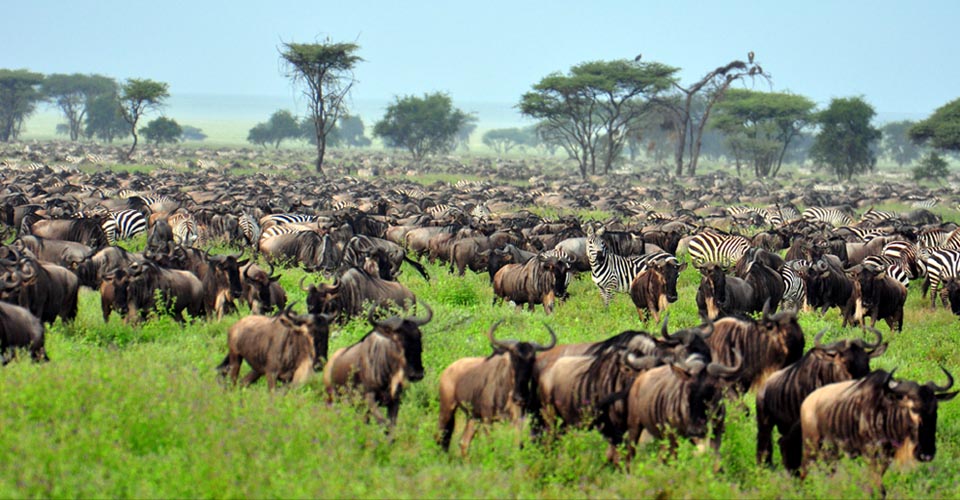 It is TANAPA’s goal to protect the wildlife and natural resources living in the park and to ensure tourists do not cause damage to the ecosystem. The organization has received various donations of vehicles and aircraft to help train rangers with modern technology and techniques.
It is TANAPA’s goal to protect the wildlife and natural resources living in the park and to ensure tourists do not cause damage to the ecosystem. The organization has received various donations of vehicles and aircraft to help train rangers with modern technology and techniques.
TANAPA also pays to maintain the park facilities for tourists and conservation activities such as Roads, Gates, Boundaries, and Airstrips and currently manages 26 airstrips throughout its network of national parks. Often forest fires break out in the parks and it is under TANAPA’s mandate to put them out.
What are concession fees?
Concession/Conservation/Camping fees are all the same thing and are a charge for staying overnight within the park in addition to the entry park fee. For example, if you stay in a tented camp in Serengeti you will pay $70.80 for high season and $59 for the low season for each night in addition to the park entry fee and the actual charge to the company that owns the tented camp.
Park Fees are the entry fee to the park and they cover 24 hours from the arrival time.
Photography Fees are related to professional photographers’ film crews for use of special equipment and rights – not for the average safari tourist with a cell phone or even a nice big impressive-looking camera.
Motor vehicle entrance fee – this is a daily fee for the vehicle to be within the park – so yes would be payable on a self-drive safari.
How much does Tanzania National Park cost?
Tanzania’s national parks authority (TANAPA) introduced a new entrance and camping fee at four parks — Lake Manyara, Tarangire, Nyere, and Arusha. The good news is that most fees for Serengeti and Kilimanjaro remain unchanged.
The high season entrance fees at Arusha, Manyara, and Tarangire were raised to US$59 per adult while the low season fee remains the same (US$53.10). The overnight camping fee at those three parks is now US$70.80 and US$59 (high season/low season) per adult.
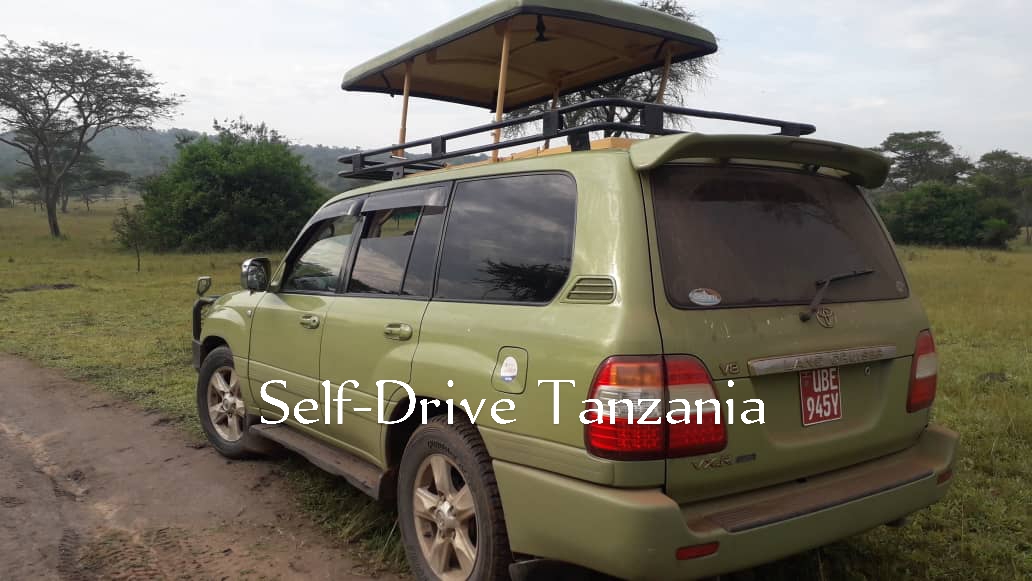 Formerly called Selous Game Reserve, Nyere National Park now charges US$82.60 and US$70.80 (high season/low season) for adult entrance; US$78.80 and US$59 per adult for camping (high season/low season).
Formerly called Selous Game Reserve, Nyere National Park now charges US$82.60 and US$70.80 (high season/low season) for adult entrance; US$78.80 and US$59 per adult for camping (high season/low season).
For park fees, the “High Season” runs from July to March and May to June; the “Low Season” from march to June.
For camping fees, the “High Season” runs from July to September; the “Low Season” runs from October to June.
Is the Serengeti Protected?
The Serengeti is a vast ecosystem in east-central Africa. It spans 12,000 square miles (30,000 square kilometers), according to NASA, giving rise to its name, which is derived from the Maasai language and means “endless plains.” This region of Africa is located in north Tanzania and extends to southwestern Kenya
The Serengeti encompasses Serengeti National Park and a number of protected game reserves and conservation areas maintained by the governments of Tanzania and Kenya. The region hosts the largest mammal migration in the world and is a popular destination for African safaris
Which Low and Peak Season on safari by Tanzania National Park?
Peak Season is from 16th May – 14th March and Low Season is from 15th March – 15th May. That means we have 2 Months of Low season in the year and the rest in Peak Seasons. The Peak season entrance fees at Arusha, Manyara, and Tarangire National Parks rose to US$59 per adult while the Low season fee remains the same (US$53.10). The overnight camping fee at those three parks is now US$70.80 in Peak Season and US$59 in Low Season per adult.
The Peak season entrance fees at Serengeti National Park rose to US$82.9 per adult while the Low season fee remains the same US$70.8. The overnight camping fee at those three parks is now US$70.80 in Peak Season and US$59 in Low Season per adult. Learn more from Tanzania National Parks
Can I pay Park Entrance Fees at the gate?
You cannot pay cash at a Park Gate in Tanzania’s National Parks. They usually insist on either the pre-paid Exxim Card or your personal MasterCard. NCAA is particularly strict on enforcing this. National Park opening hours are 6 am to 6 pm daily, For Ngorongoro, you need a guide to enter the Crater, The TANAPA certified guide is allocated to you at the Gate Office in Ngorongoro NP, For Ngorongoro, if you don’t enter the Crater Floor you don’t pay Crater fee of USD 200 per vehicle and National Park opening hours are 6 am to 6 pm daily.
How do I pay a parking fee in Tanzania?
Entry fees are to be paid when entering the park and reserves. Tanzania National Parks Authority (TANAPA) has introduced a smart card system where the money is loaded onto a card that is presented at the park gates. The prepaid cards are available at CRDB Bank in US dollars or Tanzania shillings and National Park opening hours are 6 am to 6 pm daily.
Park Fees for Adults to Arusha National Park is$53.10, Kilimanjaro National Park-$82.60, Lake Manyara National Park-$53.10, Ngorongoro Conservation area-$70.80, Serengeti national park-$70.80, Tarangire National Park-$53.10 and Park Fees for Children to, Arusha National Park-$17.70, Kilimanjaro National park-$23.60, Lake Manyara national park-$17.70, Ngorongoro conservation area-$23.60, Serengeti National Park-$23.60, Tarangire national park-$17.70
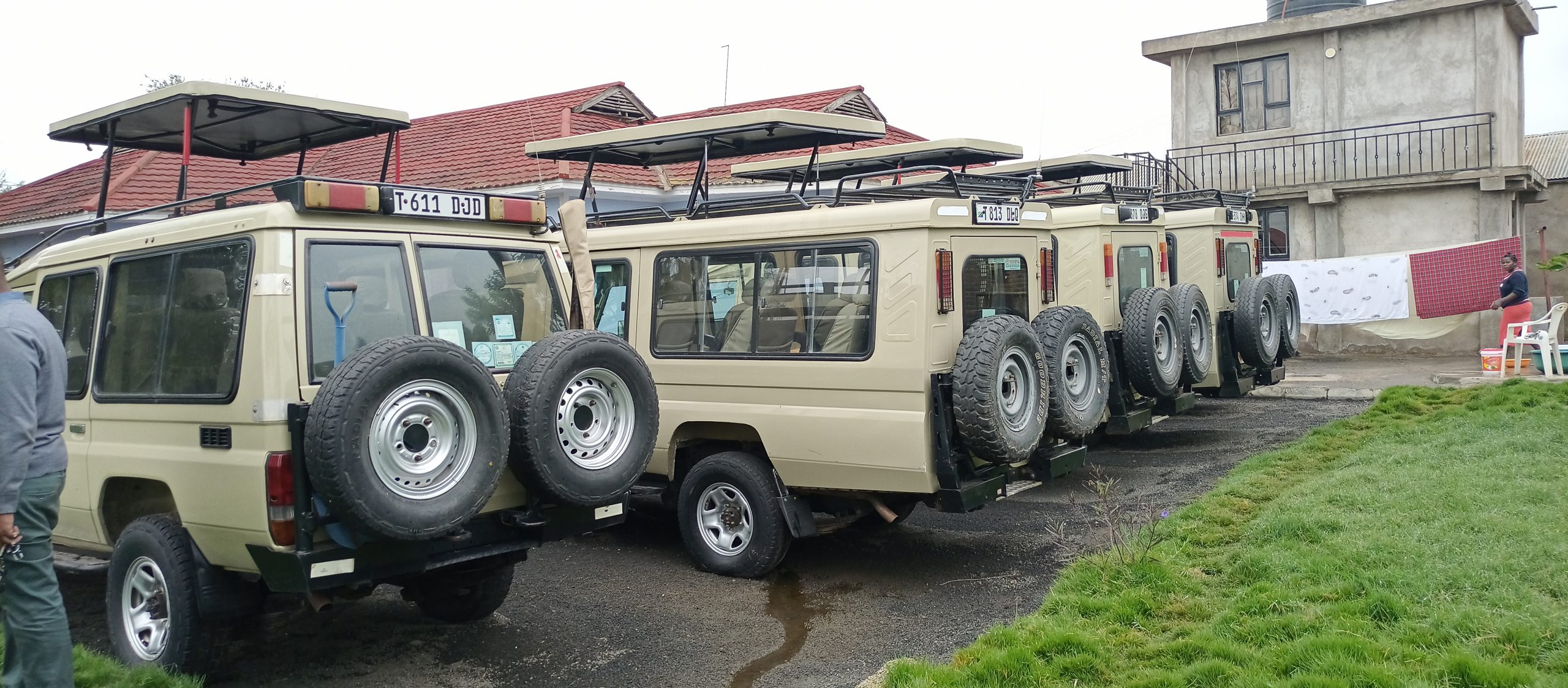 Camping Fees for Public to, Arusha National park-$35.40, Kilimanjaro National Park-$59.0, Lake Manyara national park-35.40, Ngorongoro Conservation area-$47.20, Serengeti National park-$35.40, Tarangire National park-$35.40
Camping Fees for Public to, Arusha National park-$35.40, Kilimanjaro National Park-$59.0, Lake Manyara national park-35.40, Ngorongoro Conservation area-$47.20, Serengeti National park-$35.40, Tarangire National park-$35.40
Special Campsite fees to Arusha National Park-$59.0, Kilimanjaro national park-$59.0, Lake Manyara National park-$59.0, Ngorongoro conservation area-$70.80, Serengeti national park-$59.0, Tarangire National park-$59.0, Ngorongoro crater fees-$295
Ranger fee is $17.70 to Oldupai gorge-Adults ($35.40) Children ($11.80), Letoli foot prints- Adults ($23.60) Children ($11.80)
Mountain Cabins fees to Mt. Kilimanjaro-$70.80, Mt.Meru-$35.40 and other fees charged in Tanzania parks are Photography fees-$100 and Over speeding for all types of Vehicles-$100
Tanzania Park & concession fees
A big part of the Ndutu plain is in the Ngorongoro conservation area and a small part on the Serengeti side. Most of the visitors pay Ngorongoro to spend much of their time in the Ndutu plain which is on the Ngorongoro side. You don’t pay 2 separate park fees unless you need to spend your time in Ndutu plain which is the Ngorongoro side and sleep in the Ndutu area in the Serengeti park side.
Park fees for Adults for both Ngorongoro and Serengeti park USD 60 + 18% VAT per person per day in 24hours and the concession fee is USD 50 + 18% VAT per night. Tarangire and Lake Manyara park cost around USD 45 + 18% VAT per person per day for park fees in 24 hours and concession fee USD 50 +18% per person per night.
For children aged 5-15years for both Serengeti and Ngorongoro conservation cost USD 20 + 18% VAT and for Tarangire and Manyara Park cost USD 15 per child per day (24 hours) and concession fees USD 50 + 18% VAT.
So when is the low season in Tanzania?
The low season generally runs from March to June with long rains and November to mid-December with short rains. The months of April, May, and November are the best periods to enjoy great savings and spectacular offers in accommodation
What is the best month to visit Tanzania?
The best time to visit Tanzania is from July to October when the country is at its driest. This coincides with the migration river crossings; however, all the parks offer amazing wildlife sightings at this time as the grasses and bush are at their least dense.
How much does it cost to go on safari Tanzania
How much does it cost to go on safari Tanzania?
Lodge Selection Matters: is it Budget or camping Safari
Some lodges charge differently depending on the type of Lodge. For High-end Accommodation/Lodge will make the final cost high. For example, in Magashi hotel the cost is over $1000 plus for a night. So you cannot compare this with the final cost for the person staying in lazy camping where he/she spends $20 to go camping.
The National Park Selection
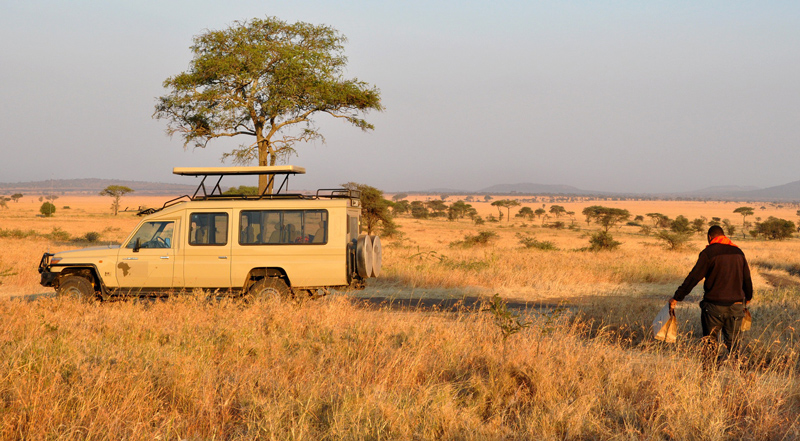 The national parks are charged according to the traffic/visitors that visit that particular park. Factors to determine will be
The national parks are charged according to the traffic/visitors that visit that particular park. Factors to determine will be
- Accessible (Parks near the city, therefore, it’s easy to visit)
- Uniqueness (Serengeti national park is $80 plus VAT 18% makes it all almost $98 per day compared to Arusha National Park which is $65 per day
- Location (some national parks are well-positioned for Serengeti and Nagororo are positioned where the migration takes place. And they have more animals.
Which National Park are you going to visit
Someone going Kilimanjaro national park is near the airport than someone going from a park far away from the national park
The duration of the trip
This depends on how many days are spent on the trip. (1 week, 2 weeks, 3 weeks or Month)
The type Vehicle/ Mode of transportation Used
Are you using domestic flights, or are you using Road transport to connect to the different national parks?
People with special requirements on the Trip
For example, choosing a Spanish/ German/French-speaking guide they are paid highly like $100 therefore when you sum up all these the trip cost is high.
The Season Matter
During the migration there is no accommodation in the northern selection, there are 2 lodges. Therefore this time the lodges are expensive thus making your cost of the trip high.
Peak season – July to August, September to October, January to February.
What are the Visa requirements for Tanzania
What are the Visa requirements for Tanzania?
To enter Tanzania, a traveler needs a visa, however, what are the visa requirements for Tanzania? Tanzania has got several types of visas that it provides to different types of travelers that would wish to enter the country. The several types of visas include an Ordinary visa or Single entry visa, a business visa, multiple entry visa, a Transit visa, and a Student visa. All the above types of visas can be obtained by travelers by either applying for eVisa or visa on arrival.
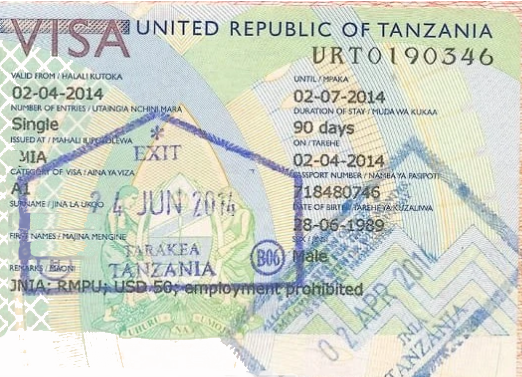 The Tanzania visa is an online visa, launched in 2018, which allows citizens from eligible countries to travel to and within Tanzania and Zanzibar. The Tanzania electronic visa is valid for tourism and leisure purposes such as a holiday in Tanzania or Zanzibar, or to visit family or friends. Each type of visa has the necessary requirements for its acquisition
The Tanzania visa is an online visa, launched in 2018, which allows citizens from eligible countries to travel to and within Tanzania and Zanzibar. The Tanzania electronic visa is valid for tourism and leisure purposes such as a holiday in Tanzania or Zanzibar, or to visit family or friends. Each type of visa has the necessary requirements for its acquisition
Business eVisa. A business visa may be issued for a period not exceeding 90 days to foreign nationals who wish to enter Tanzania for one of the following purposes. To conduct special assignments such as repairing machines or to run short-term training, to conduct special time professional roles such as auditing accounts or establishing professional and business contacts. To conduct any other short-term lawful business-related tasks recognized by the laws of the country and as may be determined by the issuing authority.
The requirements for one to acquire a business visa are: A passport copy with a clear scan of the information page of your valid and signed passport, A digital passport-type photograph taken within the last 6 months, a cover letter stating the purpose of visit to Tanzania, Taxpayer identification Number with a copy of the host company’s taxpayer identification number, Business license with a copy of host company business license, Business registration with a copy of the host organization’s certificate of incorporation.
Multiple entry visa. This type of visa may be issued to foreign nationals whose purposes of visit call for frequent visits to the country. However American nationalists who would wish to visit Tanzania for tourism or holiday purposes are advised to select this type of visa while applying online . One requires the following to acquire the visa; Passport copy with a clear scan of the information page of your valid and signed passport, A digital passport-type photograph taken within the last 16 months, Host’s ID that is to say the scanned copies of the passport of the hosts your visiting in Tanzania, Corporate documents which include the Application letter, compliance Business license TIN and Consultancy contract, Any other evidence to prove that the applicant is bound to travel frequently into the country.
Transit eVisa. This may be issued to foreign nationals for purposes of transiting through to another destination outside the country not exceeding seven days. The necessary requirements for this type of visa are; passport copy with a clear scan of the information page with a valid signed passport, A digital passport-type photograph taken within the last six months, and an itinerary or a copy of a purchased round trip ticket.
Student eVisa. A student visa is granted to foreign nationals who enter the country for academic purposes. The visa requirements for this type of visa include the following; enrollment letter that is to say an admission letter and letter of invitation issued by the academic institution, identification card issued by the institution if (applicably), Original passport that must be valid at least 6 months after the intended date of departure from the territory of the destination country and has at least 2 blank visa pages, Digital copy of the recent passport-sized photograph, Yellow fever vaccination certificate, parental approval that is to say for minor applicants, prior written consent from both parents or respective guardians giving consulate consent to issue the child a visa, An itinerary or a copy of purchased round trips tickets ( Applicant’s name and confirmation number must be on itinerary).
The Democratic Republic of Tanzania also issues on arrival visas which require the following requirements for its acquisition;
- A correctly filled application form
- Copy of travel passport valid for at least 6 months from the day of application
- A digital copy of a passport size photograph, and the proof of visa payment.
Is Tanzania dangerous for Tourists
Is Tanzania dangerous for Tourists?
Wondering whether Tanzania is dangerous for tourists? It is definitely not as Tanzania is generally a safe country for tourists. This is why Tanzania safaris top the African safari bucket list in search of the numerous wildlife species in the vast game parks. However, just like any other developing country, Tanzania holds its share of crime that could pose tourists to danger. These are minimal and can greatly be avoided when individual plans their trip with a tour company or a professional guide.
However, in cities like Arusha, travelers are advised to practice street smart. Avoid traveling alone at night, respect their sense of clothing, and when using your camera wrap the strap around your hand. Their incidences of snatch and grab in Arusha, but physical violence is not usual.
Generally, crime is not an issue in Tanzania’s game parks and reserves. Although the bush is home to plenty of dangerous animals, it’s easy to stay safe by simply following park rules and regulations and always listening to your guide. Basic tips for safe travel in Tanzania’s national parks include staying in the safari vehicle at all times (unless you’re told that it’s safe to get out or on a nature walk) and checking shoes for venomous spiders and scorpions before putting them on. Don’t feed wild animals if they approach you at campsites, you’re only encouraging aggressive behavior.
Health safety guidelines for visitors to Tanzania
Health-wise, The Centers for Disease Control and Prevention strongly recommends typhoid and hepatitis A vaccinations for most 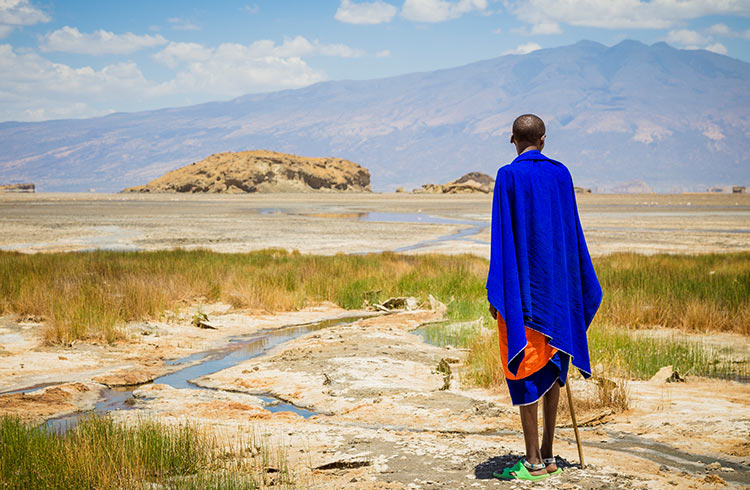 visitors to Tanzania. Your doctor may recommend a number of other vaccinations as well depending on which area of the country you’re traveling to and what you plan on doing while you’re there. These include cholera, hepatitis B, rabies, and yellow fever. If you plan on traveling to Tanzania from a country where yellow fever is endemic, you will need to prove that you have been inoculated against the disease by presenting a vaccination certificate at immigration.
visitors to Tanzania. Your doctor may recommend a number of other vaccinations as well depending on which area of the country you’re traveling to and what you plan on doing while you’re there. These include cholera, hepatitis B, rabies, and yellow fever. If you plan on traveling to Tanzania from a country where yellow fever is endemic, you will need to prove that you have been inoculated against the disease by presenting a vaccination certificate at immigration.
Malaria is a risk in all areas of Tanzania with an altitude of fewer than 5,906 feet (1,800 meters). Anti-malaria pills are recommended and there are a number of different types to choose from, although many of them come with displeasing side effects. Dengue fever is another mosquito-borne illness that is common in Tanzania and can cause severe illness. For both malaria and dengue fever, the best medicine is prevention, so pack plenty of insect repellant and stay indoors when mosquitos are most active.
Is Tanzania dangerous for solo female travelers?
General safety rules for solo female travelers to Tanzania include booking accommodation in affluent areas, avoiding townships or informal settlements unless you visit on part of an organized tour, and making sure not to walk alone at night.
If you plan on renting a self-drive car, keep the doors and windows locked when driving in the city and especially at traffic lights. Never leave valuables visible inside the car when you park because this could attract petty thieves to pick on your stuff.
When self-driving avoid giving lifts to strangers as this could expose you to thieves. Never accept lifts from strangers and be wary of anyone trying to help you hail a taxi on the street. The safest bet is to arrange official taxis through a reputable source such as your hotel.
If you aren’t accustomed to traveling alone and have never traveled in Africa, Tanzania can be a difficult solo trip for first-timer female travelers. You’ll already stand out as a foreigner and being alone can also make you an easier target for scams or worse. But just because you’re arriving alone in Tanzania doesn’t mean you have to travel alone. Research tour operators in the country based on what kind of trip you’re looking for so you can not only join a group of fellow travelers but also move around with local guides who know the area.
Is it safe to self-drive in Tanzania?
By East African standards, the road conditions in Tanzania are very good especially in the northeast of the country. All of the primary roads connecting Arusha to Ngorongoro in the west, Kilimanjaro in the East, and Dar es Salaam in the far east are smooth. Tanzania is, safe to self-drive through the towns and within the conservation safari areas.
Several safety precautions have been developed in order to improve the safety of self-driving travelers’ in Tanzania and this includes the following;
- Excessive speed is the main cause of all accidents, self-drive camper vehicles are not designed for speed.
- Travelers are always advised to wear a seat belt, which is a law and aims at protecting traveler’s lives as well as other road users.
Tanzania is not dangerous to tourists and can be visited all year round with tours to the popular world natural wonder sites like the Ngorongoro Conservation Area and Serengeti National Park.
Is Tanzania safe for solo female travelers
Is Tanzania safe for solo female travelers?
Solo female travel to Tanzania is possible and safety should be prioritized. When traveling in Africa as a solo female traveler it is really important to know how to stay safe. If you are a solo female traveler, you may take extra precautions when traveling in Tanzania, although unwanted attention is more common than actual assault.
As a female, you may attract a lot of attention, however, to avoid being made uncomfortable, consider dressing conservatively. This is especially true in the Islamic areas of Tanzania, which include Zanzibar and much of the Swahili Coast. Dress up in long dresses or pants to cover up most of your body.
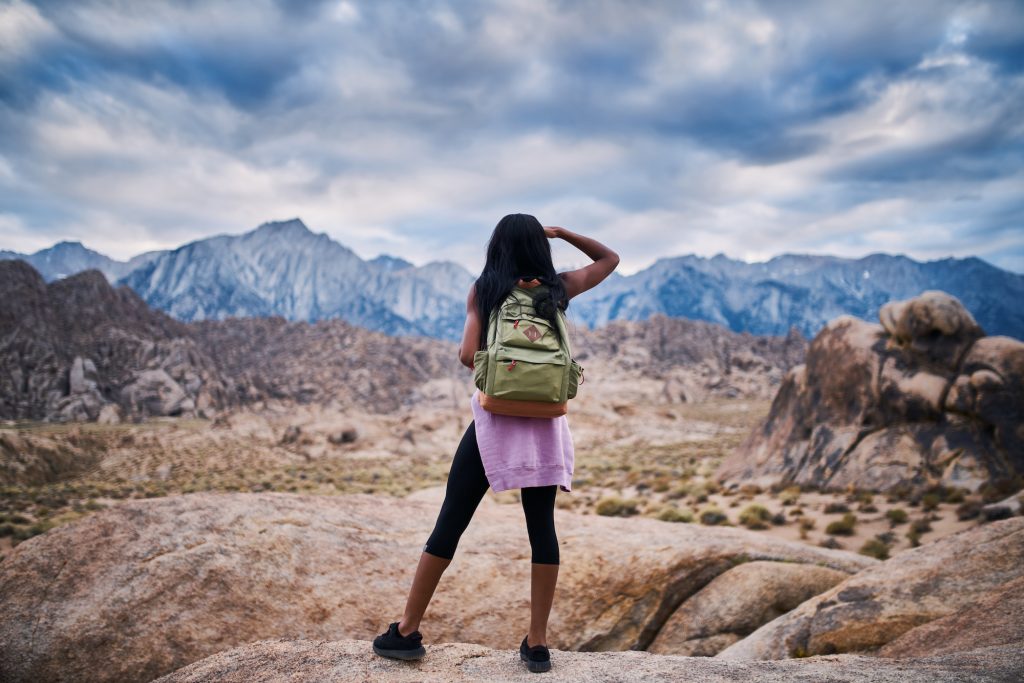 Make sure to research the hotels you would prefer to stay in carefully and always stay in a safe area. If you’re backpacking, book a private room or a bed in a girls-only dorm rather than a unisex one.
Make sure to research the hotels you would prefer to stay in carefully and always stay in a safe area. If you’re backpacking, book a private room or a bed in a girls-only dorm rather than a unisex one.
General safety rules for solo female travelers to Tanzania include booking accommodation in affluent areas, avoiding townships or informal settlements unless you visit on part of an organized tour, and making sure not to walk alone at night.
If you plan on renting a self-drive car, keep the doors and windows locked when driving in the city and especially at traffic lights. Never leave valuables visible inside the car when you park because this could attract petty thieves to pick on your stuff.
When self-driving avoid giving lifts to strangers as this could expose you to thieves. Never accept lifts from strangers and be wary of anyone trying to help you hail a taxi on the street. The safest bet is to arrange official taxis through a reputable source such as your hotel. Generally, crime is not an issue in Tanzania’s game parks and reserves.
Although the bush is home to plenty of dangerous animals, it’s easy to stay safe by simply following park rules and regulations and always listening to your guide.
Basic tips for safe travel in Tanzania’s national parks include staying in the safari vehicle at all times (unless you’re told that it’s safe to get out or on a nature walk) and checking shoes for venomous spiders and scorpions before putting them on. Don’t feed wild animals if they approach you at campsites, you’re only encouraging aggressive behavior.
If you aren’t accustomed to traveling alone and have never traveled in Africa, Tanzania can be a difficult solo trip for first-timer female travelers. You’ll already stand out as a foreigner and being alone can also make you an easier target for scams or worse. But just because you’re arriving alone in Tanzania doesn’t mean you have to travel alone.
Research tour operators in the country based on what kind of trip you’re looking for so you can not only join a group of fellow travelers but also move around with local guides who know the area.
However solo female travels in Tanzania can be successful when the traveler follows the safety tip that is normally provided. Some tips include;
- Getting covered by travel insurance
- Registering with your country’s official app for travel (if there’s one)
- Request the safari company to have someone pick you up at the airport to the hotel, in order to initiate you into the country.
- It is also advisable to book a hotel before travel
- Avoid isolated areas and walking alone especially at night.
- Be always aware of your surroundings; Keep your passport, visa, and important documentation in a secure place at the hotel and carry copies with you or have them on your phone. If you have to carry this documentation, carry it with you closely.
- Be cautious of anyone who approaches you on the street
- Do not leave your food or drink unattended
- Regarding same-sex couples and couples in general, it’s better to avoid public displays of affection.
- Take taxis only from taxi ranks or hotels. Do not use unlicensed taxis
- Try to minimize the impression that you’re a newly arrived tourist. Walk with purpose and avoid looking at maps.
- Avoid carrying loads of cash or other valuables like jewelry or watches.
It is generally safe for solo female travelers to visit Tanzania. However, be extremely cautious and very advisable to travel with a guide.
Is it safe to travel to Tanzania during coronavirus
Is it safe to travel to Tanzania during coronavirus (COVID-19) periods?
Traveling the world over has greatly been halted by the spread of the novel coronavirus. Tanzania isn’t an exception as the country had COVID-19 infections which restricted travel to the country. With time, cases of the novel coronavirus outbreak reduced, and travel to the country was opened to travelers.
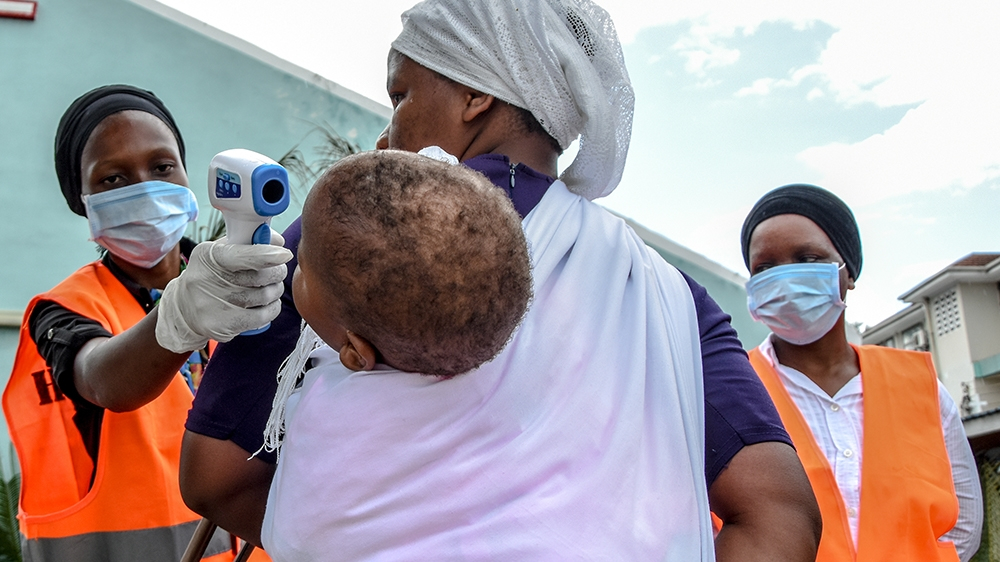 The World Health Organization reported 509 cases and 21 deaths in Zanzibar between March and May 9 2020. Since then minimum cases have been reported. Tanzania has the minimum COVID_19 prevention measures like washing hands, wearing face masks and ensuring social distance just like it is in other African countries.
The World Health Organization reported 509 cases and 21 deaths in Zanzibar between March and May 9 2020. Since then minimum cases have been reported. Tanzania has the minimum COVID_19 prevention measures like washing hands, wearing face masks and ensuring social distance just like it is in other African countries.
Both Tanzania and the archipelago of Zanzibar can still be visited by tourists during the Coronavirus pandemic times with a required minimum of following the general World Health Organization prevention measures.
Tanzanian authorities are keeping minimal measures in effect as of their response to the COVID_19 pandemic. International flights and cross-border traffic are operational. Arriving international travelers are no longer required to undergo a 14-day quarantine period; travelers are also no longer required to produce proof of having tested negative for COVID-19 upon entry into Tanzania unless their airline or country of origin requires it as a condition of travel.
Guidelines for safe travel to Tanzania during coronavirus (COVID-19) periods
However, travelers arriving at airports, including Julius Nyerere International Airport (DAR), Mwanza International Airport (MWZ), Kilimanjaro International Airport (JRO), and Abeid Amani Karume International Airport (ZNZ), must undergo enhanced screening for COVID-19 upon arrival. Persons testing positive for the disease may be required to self-isolate for up to 14 days.
Authorities could reimpose, extend, further ease, or otherwise amend any restrictions with little-to-no notice depending on disease activity over time.
However, the decision of travel is always made by an individual and therefore safety of the individual will always remain in his or her own hands. To ensure your safety, always follow the guidelines from your country of origin and also the guidelines by the World Health Organization (WHO).
Follow all official instructions. Reconfirm all travel arrangements before departure, including possible self-isolation requirements. Maintain contact with your diplomatic representation. Consider delaying travel if showing COVID-19-like symptoms as they may prompt increased scrutiny and delays.
However, after traveling to Tanzania, it is also advisable for one to follow the Covid_19 measures such as; wear a face mask, stay at least 6 feet from others, avoid crowds, and wash their hands at all times.
Use multiple personal preventive practices at once to protect yourself and others from COVID-19. With the increased circulation of some variants of concern that can spread more easily, it is even more important that you strictly follow recommended personal preventive practices: Stay informed of the local COVID-19 situation, be prepared and follow local public health advice, and on arrival Isolate for 14 days if you’re experiencing COVID-19 symptoms, even if mild. If you think you have COVID-19, follow local public health advice regarding seeking health care. Also know where to go for medical care, including a COVID-19 test.
During these times, the wild is great as wildlife and nature have been rejuvenation from the break from incoming travelers. The wild is therefore amazing and less crowded. You can keep safe and still travel for a Tanzania safari during these times.


